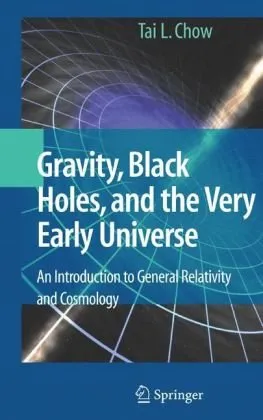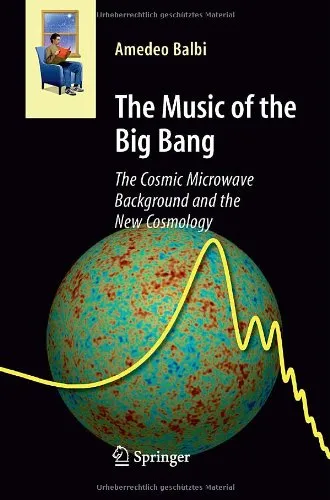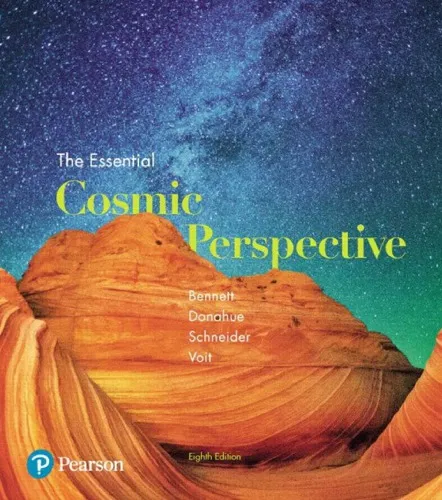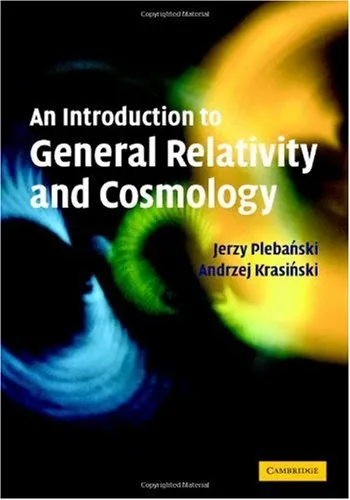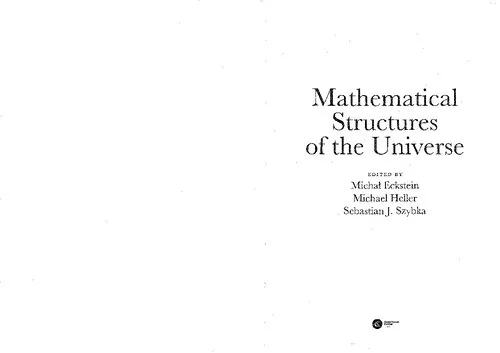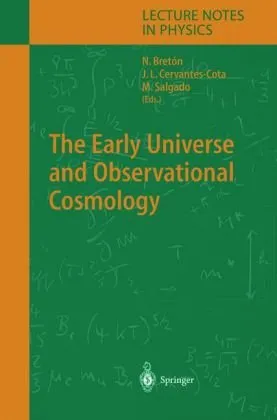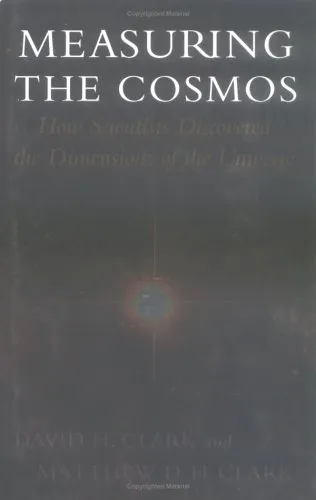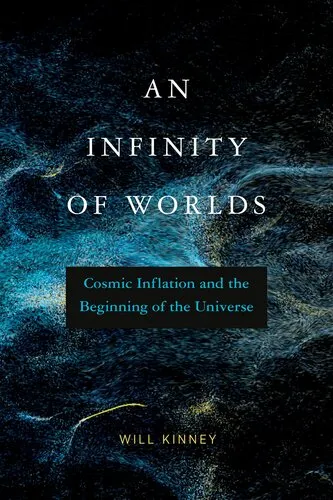Gravity, black holes, and the very early universe
4.3
Reviews from our users

You Can Ask your questions from this book's AI after Login
Each download or ask from book AI costs 2 points. To earn more free points, please visit the Points Guide Page and complete some valuable actions.کتاب های مرتبط:
Introduction to Gravity, Black Holes, and the Very Early Universe
Gravity, Black Holes, and the Very Early Universe is a captivating exploration of the fundamental principles shaping the universe. This book delves deeply into the astonishing phenomena of gravity, the enigmatic nature of black holes, and the profound events that occurred in the earliest moments of the cosmos. Written for science enthusiasts, academics, and curious readers, this work aims to unravel the complexity of key astrophysical concepts while maintaining accessibility through clear explanations and thought-provoking insights.
The universe, with its endless mysteries, is governed by laws and forces that continue to awe and inspire scientists. Gravity, in particular, plays a paramount role in not only orchestrating the motion of celestial bodies but also bridging the vast realms of general relativity and quantum mechanics. This book takes readers on a journey to understand how black holes form, how they challenge our understanding of physics, and how they interconnect with theories of the Big Bang and the earliest stages of the universe. This is the story of how the cosmos was shaped by the interplay of gravitational forces, energy, and matter at their most extreme.
Detailed Summary of the Book
Gravity, Black Holes, and the Very Early Universe begins by introducing readers to the foundational concepts of modern physics. The early chapters provide an overview of Einstein's theory of general relativity, which revolutionized our understanding of gravity as the curvature of spacetime. Furthermore, it explores the intricacies of quantum mechanics—a domain that continues to mystify physicists but holds key insights into the behavior of matter on the smallest scales.
The narrative gradually transitions into the study of black holes as one of the most consequential predictions of general relativity. The book discusses their formation, the concept of the event horizon, and the strange physics associated with singularities. Can information escape a black hole? What is the fate of matter that crosses the event horizon? These questions are explored alongside the enigmatic possibility of Hawking radiation, where black holes may "evaporate" over extended periods of time.
Using black holes as a stepping stone, the book proceeds to examine the very early universe moments after the Big Bang. It delves into concepts such as cosmic inflation, symmetry breaking, and the transition of the universe from an unimaginably hot, dense state to its present-day form. These discussions offer a unified picture of how gravity, quantum mechanics, and thermodynamics converged to shape the cosmos. The book concludes by addressing unresolved questions, including the nature of dark matter, dark energy, and the pursuit of a theory of quantum gravity—a framework that must reconcile general relativity and quantum physics.
Key Takeaways
- The interplay between general relativity and quantum mechanics is central to understanding the cosmos.
- Black holes are not merely cosmic oddities but crucial laboratories for testing our understanding of physics.
- The early universe was a realm of extreme conditions, offering valuable insights into the origin and evolution of the cosmos.
- Scientists are still grappling with unresolved questions such as the nature of dark matter, dark energy, and the unification of physical laws.
- Exploring these phenomena deepens our appreciation for the inherent beauty and mystery of the universe.
Famous Quotes from the Book
"Gravity, the silent architect of the cosmos, governs the dance of galaxies while hinting at realms beyond human comprehension."
"The event horizon of a black hole is not merely a boundary; it is a window into the limits of physical law."
"The very early universe, though fleetingly brief, shaped everything we see, touch, and wonder about today."
Why This Book Matters
Gravity, Black Holes, and the Very Early Universe is more than just a book about astrophysics—it is a guide to understanding humanity's place within the cosmos. By unraveling the complex ideas of gravity, black holes, and the birth of the universe in a digestible yet rigorous manner, it serves as a bridge between professional scientific insights and public curiosity.
This book is essential for anyone seeking to understand the laws that govern the universe and the profound mysteries that continue to inspire discovery. It engages readers with detailed explanations, thought-provoking questions, and a vision of how far human intellect has come—and how far it still has to go. Whether you're a student, a physicist, or simply someone curious about the universe, this book provides valuable insights into the phenomena shaping our reality.
Free Direct Download
You Can Download this book after Login
Accessing books through legal platforms and public libraries not only supports the rights of authors and publishers but also contributes to the sustainability of reading culture. Before downloading, please take a moment to consider these options.
Find this book on other platforms:
WorldCat helps you find books in libraries worldwide.
See ratings, reviews, and discussions on Goodreads.
Find and buy rare or used books on AbeBooks.
1322
بازدید4.3
امتیاز0
نظر98%
رضایتReviews:
4.3
Based on 0 users review
Questions & Answers
Ask questions about this book or help others by answering
No questions yet. Be the first to ask!
